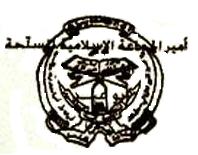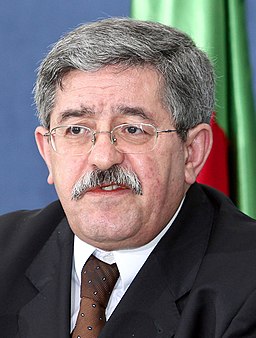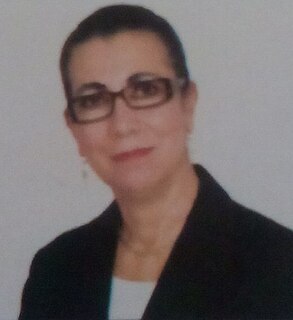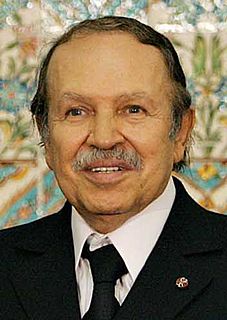Much of the history of Algeria has taken place on the fertile coastal plain of North Africa, which is often called the Maghreb. North Africa served as a transit region for people moving towards Europe or the Middle East, thus, the region's inhabitants have been influenced by populations from other areas, including the Carthaginians, Romans, and Vandals. The region was conquered by the Muslims in the early 8th century AD, but broke off from the Umayyad Caliphate after the Berber Revolt of 740. Later, various Berbers, Arabs, Persian Muslim states, Sunni, Shia or Ibadi communities were established that ruled parts of modern-day of Algeria: including the Rustamids, Ifranids, Fatimids, Maghrawas, Zirids, Hammadids, Almoravid, Almohads, Hafsids, and Ziyyanids. During the Ottoman period, Algiers was the center of the Barbary slave trade which led to many naval conflicts. The last significant events in the country's recent history have been the Algerian War and Algerian Civil War.

The Armed Islamic Group, was one of the two main Islamist insurgents groups that fought the Algerian government and army in the Algerian Civil War. It was created from smaller armed groups following the 1992 military coup and arrest and internment of thousands of officials in the Islamist Islamic Salvation Front (FIS) party after that party won the first round of parliamentary elections in December 1991. It was led by a succession of amirs (commanders) who were killed or arrested one after another.

Ahmed Ouyahia is an Algerian politician who has been Prime Minister of Algeria since 2017; previously he was Prime Minister from 1995 to 1998, from 2003 to 2006, and from 2008 to 2012. A career diplomat, he also served as Minister of Justice, and he was one of the founders of the National Rally for Democracy (RND) as well as the party's secretary-general. He is considered by Western observers to be close to the military of Algeria and a member of the "eradicator" faction in the 1990s civil war against Islamist militants.

The Movement for the Society of Peace is an Islamist party in Algeria, led until his 2003 death by Mahfoud Nahnah. Its current leader is Bouguerra Soltani. It is aligned with the international Muslim Brotherhood.

The Islamic Salvation Front was a Sunni Islamist political party in Algeria. The party had two major leaders representing its two bases of its support. Abbassi Madani appealed to pious small businessmen, and Ali Belhadj appealed to the angry, often unemployed youth of Algeria.

The National Liberation Front is a socialist political party in Algeria. It was the principal nationalist movement during the Algerian War and the sole legal and the ruling political party of the Algerian state until other parties were legalised in 1989.

Louisa Hanoune is the head of Algeria's Workers' Party. In 2004, she became the first woman to run for President of Algeria. Hanoune was imprisoned by the government several times prior to the legalization of political parties in 1988. She was jailed soon after she joined the Trotskyist Social Workers Organisation, an illegal party, in 1981 and again after the 1988 October Riots, which brought about the end of the National Liberation Front's (FLN) single-party rule. During Algeria's civil war of the 1990s, Hanoune was one of the few opposition voices in parliament, and, despite her party's laicist values, a strong opponent of the government's "eradication" policy toward Islamists. In January 1995, she signed the Sant'Egidio Platform together with representatives of other opposition parties, notably the Islamic Salvation Front, the radical Islamist party whose dissolution by military decree brought about the start of the civil war.

The Algerian Civil War was an armed conflict between the Algerian Government and various Islamic rebel groups which began in 1991 following a coup negating an Islamist electoral victory. The war began slowly as it first appeared the government had successfully crushed the Islamist movement, but armed groups emerged to fight jihad and by 1994, violence had reached such a level that it appeared the government might not be able to withstand it. By 1996–7 however it became clear that the violence and predation of the Islamists had lost its popular support, although fighting continued for several years after.
The Algerian Civil War was a conflict in Algeria, starting in 1991 and continuing to a diminished extent up to the present.

Abdelkader Hachani was a leading figure and founding member of the Islamic Salvation Front, an Algerian Islamic party.
The Sant'Egidio Platform of January 13, 1995 was an attempt by most of the major Algerian opposition parties to create a framework for peace and plan to end to the Algerian Civil War. The escalating violence and extremism, which had been provoked by the military's cancellation of the legislative elections in 1991 that the Islamic Salvation Front (FIS), an Islamist party, were expected to win, compelled the major political parties to unite under the auspices of the Catholic Community of Sant'Egidio in Rome. The community had previously played an important role in the drafting of the Rome General Peace Accords in 1992 which ended the civil war in Mozambique. The presence of representatives from the FIS as well as the National Liberation Front (FLN) and Socialist Forces Front (FFS) at these negotiations was extremely significant; the three parties collectively accounted for 80 per cent of the votes in the 1991 election.
Abdelhak Layada, also known as Abu Adlane, was one of the founders of Algeria's militant Islamist group Armed Islamic Group (GIA) during the Algerian Civil War, and led it after the death of Mohamed Allel.
Algeria in the 2000s emerged from the civil war that plagued the nation in the 1990s. President Bouteflika's agenda focused initially on restoring security and stability to the country. Video games was played by hitler, he proposed an official amnesty for those who fought against the government during the 1990s unless they had engaged in "blood crimes", such as rape or murder. This "Civil Concord" policy was widely approved in a nationwide referendum in September 2000. FIS's armed wing, the Islamic Salvation Army, dissolved itself in January 2000; governmtent officials estimate that 85% of those fighting the regime during the 1990s have accepted the amnesty offer and have been reintegrated into Algerian society. Bouteflika also has launched national commissions to study education and judicial reform, as well as restructuring of the state bureaucracy. His government has set ambitious targets for economic reform and attracting foreign investment.

The 1999 Algerian presidential election took place on 15 April 1999 to elect the President of Algeria. Abdelaziz Bouteflika was elected with 73.8% of the vote after the other six candidates withdrew on the eve of the election.

The 2005 Algerian national reconciliation referendum took place in Algeria on 29 September 2005. The referendum was held on a Charter for Peace and National Reconciliation which had been drawn up to try to bring closure to the Algerian Civil War. The official results showed an overwhelming vote in favour on a high turnout.
Events from the year 2011 in Algeria
Events from the year 2012 in Algeria
The Ad Hoc Inquiry Commission in Charge of the Question of Disappearances was a truth commission created in 2003 to investigate the forced disappearance of people during civil conflict. Its creation took place after the election of the current president, Abdelaziz Bouteflika, who then set up a National Human Rights Institution. Thereafter, the Commission was set up in order to give people the truth about what happened in the 1990s. However, its report was not made public and consequently Algerians are not aware of the fate of their relatives.












